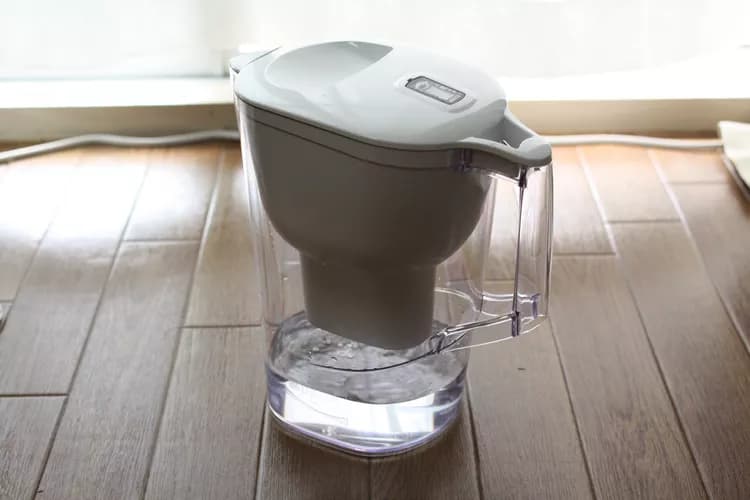Water is foundational to all life including the human body. Staying hydrated is one of the most important things you can do to your body since it is made up of 70% water. Mild dehydration can drain your muscles and brain and make you feel fatigued. We must continually drink water because we are always losing water through daily functions - whether it is through breathing, sweating, urinating, or during bowel movements.
The amount of water recommended is different depending on the person’s physical activity and metabolism. If an individual is athletic and exercises often, then that person must drink more water than a person who lives a sedentary lifestyle. The Institute of Medicine determined that an adequate intake for men is approximately 13 cups (3 liters) of total beverages a day. The adequate intake for women is about 9 cups (2.2 liters) of total beverages a day.
Tap water in the United States is safe because the Environmental Protection Agency (EPA) monitors all public water systems and places enforceable health principles regarding the contaminants in drinking water. Drinking water from your house is safe, but that does not mean that it is free from all contaminants. Besides, in case any accidents happen and there is substantial water contamination, then the water supplier must inform you immediately.
Tap water can be contaminated in a variety of ways. It can contain microorganisms, like bacteria and parasites, that get into the water through human or animal feces. Tap water may also contain chemicals from industrial waste and spraying crops. The nitrates used in fertilizers can enter the water along with minerals such as lead or mercury.
Who are most vulnerable to contaminated water?
Individuals who are most vulnerable to contaminated water belong to the following groups:
- Individuals undergoing chemotherapy
- Individuals with weak immune systems
- Transplant patients
- Children and infants
Individuals who drink well water should be very careful and aware of its quality. It is observed that one in seven Americans drink water from a private well. Such private wells are not regulated by the EPA. Also, the well water safety can be affected by a number of factors including:
- How the well was built
- Where it is located
- How it is maintained
- The quality of the aquifer supplying the well
Using a drinking water filter like an activated carbon filter can remove certain bacterial contaminants that affect its taste and odor. Moreover, these home water filtration systems have to be replaced after every 40 gallons, or every two months for a family of average size. Other systems are also designed to eliminate byproducts of chlorination, solvents, and pesticides, or heavy metals such as copper or lead. Generally, there is no single system that will remove all water contaminants to produce perfectly filtered water.
Additional Resources:
American College of Sports, M., Sawka, M. N., Burke, L. M., Eichner, E. R., Maughan, R. J., Montain, S. J., & Stachenfeld, N. S. (2007). American College of Sports Medicine position stand. Exercise and fluid replacement. Med Sci Sports Exerc, 39(2), 377-390. doi: 10.1249/mss.0b013e31802ca597
EPA. (n.d.). Retrieved December 2, 2014, from http://www2.epa.gov/laws-regulations
Fit Facts: Healthy Hydration. (2008, January 1). Retrieved December 2, 2014, from http://www.acefitness.org/fitfacts/pdfs/fitfacts/itemid_173.pdf
Hydration: Why It's So Important. (n.d.). Retrieved December 2, 2014, from http://familydoctor.org/familydoctor/en/prevention-wellness/food-nutrition/nutrients/hydration-why-its-so-important.html
Simpson, M., & Howard, T. (2011, January 1). Selecting and Effectively Using Hydration for Fitness. Retrieved December 2, 2014, from http://www.acsm.org/docs/brochures/selecting-and-effectively-using-hydration-for-fitness.pdf
The water in you. (n.d.). Retrieved December 2, 2014, from http://water.usgs.gov/edu/propertyyou.html
Water: Meeting Your Daily Fluid Needs. (2012, October 10). Retrieved December 2, 2014, from http://www.cdc.gov/nutrition/everyone/basics/water.html
Water. (n.d.). Retrieved Decemb
er 2, 2014, from http://www.nal.usda.gov/fnic/DRI/DRI_Water/73-185.pdf
Helpful Peer-Reviewed Medical Articles:
Baumgartner, J., Murcott, S., & Ezzati, M. (2007). Reconsidering ‘appropriate technology’: the effects of operating conditions on the bacterial removal performance of two household drinking-water filter systems.Environmental Research Letters, 2(2), 024003.
Postel, S. L., & Thompson, B. H. (2005, May). Watershed protection: Capturing the benefits of nature's water supply services. In Natural Resources Forum (Vol. 29, No. 2, pp. 98-108). Blackwell Publishing, Ltd..
Westholm, L. J. (2006). Substrates for phosphorus removal—Potential benefits for on-site wastewater treatment?. Water Research, 40(1), 23-36.
Halden, R. U., & Paull, D. H. (2005). Co-occurrence of triclocarban and triclosan in US water resources. Environmental Science & Technology,39(6), 1420-1426.
Ahmedna, M., Marshall, W. E., Husseiny, A. A., Rao, R. M., & Goktepe, I. (2004). The use of nutshell carbons in drinking water filters for removal of trace metals. Water Research, 38(4), 1062-1068.
Related Articles
Test Your Knowledge
Asked by users
Related Centers
Related Specialties
Related Physicians
Related Procedures
Related Resources
Join DoveHubs
and connect with fellow professionals


0 Comments
Please log in to post a comment.